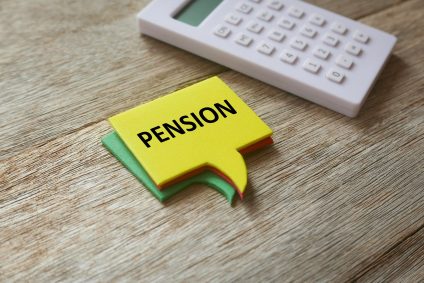Tax planning is an essential part of financial planning. But this does not simply mean saving tax for the sake of it. It means taking the most efficient path towards achieving your goals.
Any tax saved equates to more money in your pocket, which can help you achieve your goals more quickly. On the other hand, tying your money up in complex or high-risk products might save you tax, but could ultimately leave you worse off.
The key is to use tried and tested strategies to reduce tax – making use of allowances, investing in tax-efficient wrappers, and staying consistent.
Use Your ISA Allowance
If you are investing for the medium to long term and want to make sure your money can be accessed if needed, an ISA could be the answer. A Stocks and Shares ISA allows you to invest in assets from across the market, including funds and shares.
Best of all, any growth and income generated by your ISA is free of tax and you can take your money out without penalty.
Of course, this doesn’t mean it is risk-free – you can expect your Stocks and Shares ISA to fluctuate with the market just like any other investment. Your returns will depend on your investment choice, so it’s important to choose a diverse fund or portfolio that aligns with your goals and risk profile.
If taking volatility risk with your money is not an option (and assuming your timescales are less than five years), it’s worth considering a Cash ISA, particularly now that interest rates are more competitive. This can always be moved to a Stocks and Shares ISA later.
You can invest up to £20,000 per tax year in an ISA (which can be part cash and part investment), however if you don’t use your allowance by the end of the tax year, you cannot carry it forward. It’s worth making sure your ISA allowance is fully utilised if possible, so you don’t miss out on tax-free growth.
Make Pension Contributions
Pensions offer even more tax advantages than ISAs, although they are more complex and have some limitations.
If you are employed, there is a good chance you are already making regular contributions to a workplace pension. It might be worth considering if you should top this up, particularly if you are a higher or additional rate taxpayer. Remember, you will get tax relief at your full marginal rate on your contributions (although you may need to claim higher rate or additional rate tax from HMRC via a self-assessment or writing them a letter).
If you are a business owner, you might want to consider making employer (gross) contributions into your pension from your company. These are normally allowable for corporation tax purposes, as well as helping you to grow wealth outside your business.
Pension allowances can be carried forward for up to three previous tax years providing you meet the criteria. Therefore, if you have an unused allowance from 2020/2021, this is only available until 5th April 2024. You must always fill the current tax year first though, before going back three years and then working back to the present.
Use Your CGT Exemption
When you sell assets, such as funds, shares, or property, you may need to pay Capital Gains Tax (CGT) on your profits.
The first £6,000 of gains are tax-free, although this is reducing to £3,000 from 6th April 2024. If you have any gains to realise, it might be worth aiming to sell before the end of the tax year.
Transfers between spouses are ignored for CGT purposes. This means that it might be a good idea to transfer assets (fully or partially) to your spouse before selling to make use of both exemptions. This can be even more effective if your spouse pays a lower rate of tax.
Even if you don’t particularly need to sell an asset, it can be tax-efficient to use your exemption every year, for example by switching funds or moving money into your ISA. This can help avoid large gains rolling up and becoming taxable later.
Saving for Children
If you want to set aside money for your children, a Junior ISA is a tax-efficient option. These work in a similar way to standard ISAs, although with a lower annual contribution limit (£9,000).
Of course, many parents are unsure about making large sums of money automatically available to their children at age 18. Depending on your circumstances and how much you want to set aside, you might consider trust planning or simply investing the money in your own name.
Tax Efficient Estate Planning
If you have an Inheritance Tax (IHT) liability, you might want to factor this into your tax-efficient investment plan. Options for dealing with IHT include:
- Making gifts, including making use of gifting exemptions.
- Setting up trusts.
- Arranging an insurance policy to pay the tax bill.
- Investing in assets which qualify for business relief.
There are some considerations for the end of the tax year, for example, using your gift allowances. However, estate planning is a complex area, and any decisions should not be rushed.
What if You Have Used Your Allowances?
If you have fully funded your ISA and pension and are likely to exceed your CGT exemption, you may want to consider other tax-efficient investment options, for example:
- Investment bonds (onshore or offshore)
- Venture Capital Trusts (VCT)
- Enterprise Investment Schemes (EIS)
These options are more complex and both VCTs and EISs are significantly higher risk than mainstream investments. However, when used appropriately, some investors can make substantial tax savings. Advice is strongly recommended.
Getting Ahead for Next Tax Year
You don’t need to wait until the end of the tax year to make use of your allowances. In fact, using your ISA and pension allowances early in the tax year (on or soon after 6th April) gives your money more time to grow.
Alternatively, making regular contributions removes this admin entirely, as well as allowing you to benefit from pound-cost averaging.
When you invest tax-efficiently, your investments can grow more quickly, and you have more money available to achieve your goals. The best way to do this is by using sensible tax planning strategies on a consistent basis.
Please don’t hesitate to contact your Tandem adviser to find out more about the topics covered.




